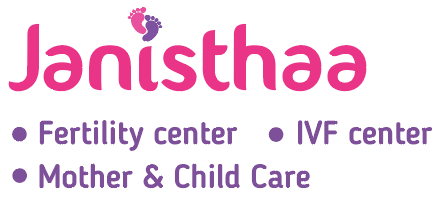Endometrium is a thin layer of protective tissue which forms the lining of the uterus, playing an important role in preparing and the process of pregnancy. Every month, the endometrium thickens itself to aid a successful pregnancy, where the embryo implants itself into the endometrium. In case of absence of pregnancy, the endometrium sheds itself, which is known as the menstrual cycle. A successful pregnancy is also dependent upon a nourished internal ecosystem.
The endometrium also plays this nourishing role by secreting essential nutrients and fluids with the help of other hormones such as progesterone. It secretes proteins, lipids and glycogens that are imperative for healthy growth of the foetus. Therefore, endometrium plays both an important protective as well as nourishing role. This phenomenon is seen in other mammals as well.
There are several instances where certain conditions related to the endometrium might affect fertility. These include endometrial cancer, endometrial polyps, endometriosis, luteal phase defect, viral infections as well as structural issues such as the endometrium being too thin or too thick. Usually, a vaginal ultrasound is used to detect the size of the endometrium and it varies not only across the life span i.e., through childhood to fertility years and post menopause, but also across the phases of the menstrual cycle. It is said to be the thinnest during menstruation (The average thickness is said to be around 2-4 millimeters) and thickens post menstruation up to even 16 mm. Any size below 7 mm is considered as thin endometrium.
Having an endometrium that is too thin risks pregnancy by increasing the chances of miscarriages as the embryo implantation is not too stable. A thin endometrium is also usually treated as a sign of decreasing fertility.
Also, Read BLOCKED FALLOPIAN TUBES: CAUSES, SYMPTOMS, PRECAUTIONS AND TREATMENT
Symptoms
Some of the common symptoms that leads to the diagnosis of the condition are:
- Abnormal levels of vaginal bleeding (extremely heavy) during menstruation;
- Spotting between periods;
- Irregular menstrual cycles that last longer than 38 days or short blood flows; or
- Bleeding or spotting after menopause.
It helps to consult the Doctor when one has severe pelvic pain, bloating or fullness without eating much, of course, without heeding to self-diagnosis and self-care.
Causes
Causes for thin endometrium could range from internal physiological to external elements such as medical drugs:
- The hormone Estrogen is important for the growth and formation of a healthy endometrium. If the estrogen levels are too low or too high, it leads to the endometrium being too thin or too thick;
- Long term use of birth control pills or fertility pills such as Clomid are associated with thin endometrium;
- Eating disorders such as Anorexia (with low body-mass index), affects the quality of endometrium lining;
- A Luteal defect (during luteal phase of the menstrual cycle) occurs due to low progesterone levels or non-sustained levels for a considerable period of time which fails to keep the endometrium intact;
- Previous Uterine surgeries leading to infections, inflammations, development of scar tissues etc;
- Insufficient amount of blood flow;
- Fibroids;
- Pelvic Inflammatory Disease; or
- Intrauterine adhesions.
Also, Read ENDOMETRIOSIS: SYMPTOMS, COMPLICATIONS, AND TREATMENT
Treatment
Treatment includes:
- Hormone therapy includes ingestion of estrogen through patches, injections or oral administration;
- Ingestion of human chorionic gonadotropin (which is usually produced by the placenta after an embryo implant into the uterus wall);
- Medications to aid improvement of blood flow.
One of the important factors to remember is to have a healthy lifestyle with a good diet, sleep/rest and adequate exercising which helps in regulating good blood flow. But most importantly, it is essential to consult an expert when faced with any fertility-related issues.
Janisthaa Fertility Center and Hospital, located at Basaveshwar Nagar, offers a wide range of treatment for conditions such as Thinning Endometrium, PCOS etc. Women suffering from these conditions for more than 10 years have been able to attain successful pregnancy.
Under the leadership of Dr. Shwetha and other highly skilled and experienced fertility specialists, the center has adopted proven approach of treatment, emphasizing on fewer drugs. The emphasis is on making the treatments patient friendly and stress-free. With 25,000 plus consultations and high success rate, it is all about families and wanting to help you start one of your own.
For more information, visit the website https://janisthaaivf.com/ and book a free consultation today on +91 7619198082.

